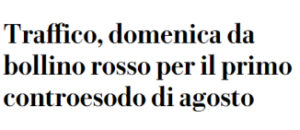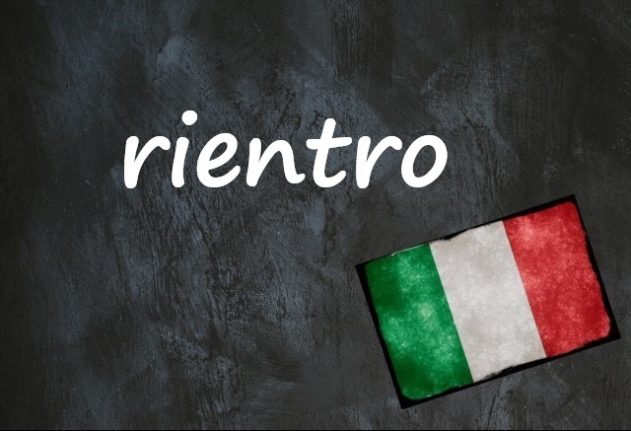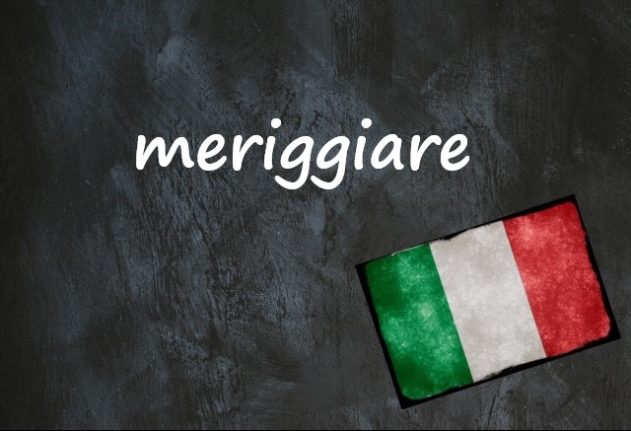If you live in Italy you’ll hear this phrase used a lot in the coming days and weeks.
In fact, it’s practically impossible to avoid talk of ‘il rientro’ as the long summer holidays come to an end.
The word rientro, as you may be able to guess, literally translates as ‘reentry’ or ‘return’, and this is the term widely used for the start of the school year or the return to work after the summer holidays.
It can be used at the start of any new school term or after other holidays, but the end-of-summer event is something pretty much the whole country takes part in – which is why it’s often referred to as Il grande rientro.
And, as you’ll know if you live in Italy, it takes on a greater sense of importance and occasion in Italian than the closest English translations might suggest.
– Siete pronti per il rientro?
– Are you ready to go back to work/school?
Just as the Ferragosto mid-August holiday is a sacred national tradition, with most of the country taking their ferie or annual leave over the same few weeks, so then is the return home afterwards.
READ ALSO: How do Italy’s public holidays compare to other EU countries?
As such, at the end of August Italy experiences the controesodo – the opposite of the early August esodo or exodus, when pretty much the entire country goes on holiday at once, always resulting in huge traffic jams.
With everyone coming back from their holidays at once, the country’s roads and railways are similarly packed once more – but the mood is decidedly lower this time.

‘Traffic, red alert on Sunday for the first controesodo of August’ – Headline from newspaper La Repubblica on August 22nd, 2021.
While the controesodo is tinged with post-holiday sadness, there’s some excitement and relief about the rientro – parents are glad to send children back to school after more than two – sometimes nearly three – long months, and there’s the fun of favourite restaurants reopening and catching up with friends after the holidays.
– Il giorno dopo il rientro a casa, sono andato a trovare i miei amici
– The day after we returned home, I went to visit my friends
Il rientro signals a nationwide change of pace and mood. It’s time to get going again, in every sense, after weeks – if not months – of long family lunches, afternoon naps, and quiet days at the beach.
Some people even see it as a fresh start, not unlike the New Year.
Do you have a favourite Italian word you’d like us to feature? If so, please email us with your suggestion.
Did you know you can get all our Italian words and expressions of the day on our new app as soon as we publish them? It takes a few seconds to download the app at the Apple or Android store, then you can select “Italian Word of the Day” in your Notification options via the “User” button.



 Please whitelist us to continue reading.
Please whitelist us to continue reading.
Member comments